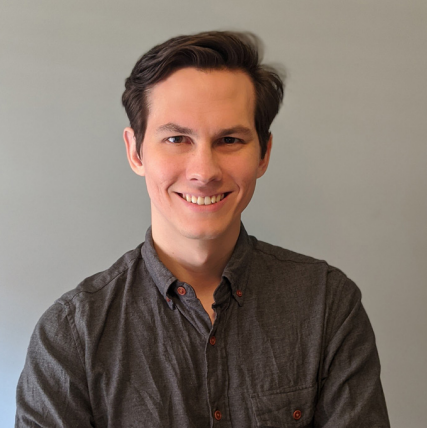Dr. Tyler Pearson
This seminar has been moved from Thursday, 1/11/2024 to Friday, 1/12/2024.
Tyler Pearson
Department of Chemistry
University of Chicago
Abstract
Adventures in synthetic chemistry: from magnetism to organic methods
Synthetic chemistry enables the modulation of molecular structures with atomic precision, thereby providing a valuable platform for answering questions from physics to biology. This seminar will focus on the applications of synthetic chemistry in two different contexts.
First, I will discuss using synthetic inorganic chemistry as a tool to understand magnetism at the molecular level. In this context, the study of the magnetoelectronic properties of precisely engineered heterobimetallic complexes enabled us to learn about the influence of spin-orbit coupling on the magnetic properties of high-spin transition metal ions both directly and indirectly bound to heavy diamagnetic ions.
I will then pivot to discussing the development of new synthetic methodologies relevant to applications in discovery chemistry. The discovery, optimization, and applications of a novel site- specific benzene-to-pyridine transformation will form the basis of this discussion.
Tyler Pearson
Dr. Tyler Pearson is currently a postdoctoral scholar in Mark Levin’s group at the University of Chicago. He received his undergraduate degree from Yale University where he did research in homogeneous organometallic catalysis with Nilay Hazari. He then went on to obtain his PhD at Northwestern University working in Danna Freedman’s lab where he was supported by an NSF Graduate Research Fellowship. During his PhD, he developed a keen interest in new ways to manipulate the electronic properties of inorganic molecular complexes, particularly those related to magnetism and spin dynamics. Looking to ultimately apply a similar approach to the manipulation of reactivity for applications in organic synthesis, Dr. Pearson sought a postdoctoral appointment where he could gain firsthand experience in developing new and useful organic transformations.
To that end, he started a postdoctoral appointment in the Levin lab at the University of Chicago, where he has been since 2021. While in the Levin lab, he turned his attention to developing “transmutative” isosteric atom exchanges within aromatic rings. His primary contribution in this space was the development of a site-directable benzene- to-pyridine transformation leveraging a novel oxidative ring contraction.
Hosted by Professor Jessica Hoover
